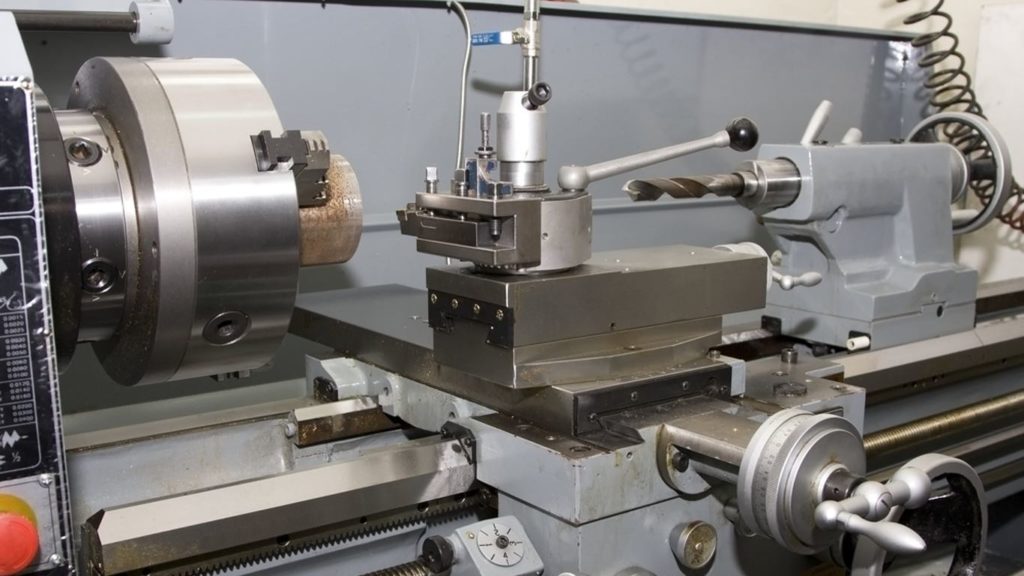
Curriculum Requirements of a Mechanical Engineering Student
Mechanical engineers work with machines and engines, from elevator technology to robotics.
At a minimum, a mechanical engineering career requires a bachelor’s degree. Though the mechanical engineering curriculum requirements of every college and university vary slightly, all higher learning institutions certified by the Accreditation Board for Engineering and Technology (ABET) — the institution that sets STEM standards in the United States for bachelor’s, master’s and doctoral programs — provide students with instruction in very specific subject matter.
Requisite studies include system components, such as computer programming and power systems, as well as technical subject matter (such as fluid mechanics, hydraulics and thermodynamics). In addition to courses specific to mechanical engineering, ABET requires that students develop a basic understanding of other engineering fields including chemical, civil and electrical. Many programs include coursework in fields where mechanical engineering is often applied, such as business or environmental science.
Different Concentrations of Mechanical Engineering Majors
There are six major focus areas of mechanical engineering – these are broad areas to help you think about what most interests you – and they are not mutually exclusive:
- Aerospace engineering
- Fluid (liquid and gas) flow and pressure engineering
- Rotating and motion control engineering
- Energy conversion and thermal engineering
- Structures engineering
- Vehicle systems engineering
Each academic concentration deals with studies related to the specific techniques and tools used in a particular mechanical engineering field. For example, thermal engineering studies the transfer of heat between different mediums and the conversion of heat into other useful forms of energy.
Colleges That Have Uniquely Interesting Mechanical Engineering Schools
The most famous engineering school in the United States, if not the world, the Massachusetts Institute of Technology (MIT) was the origin of many of the greatest advancements in mechanical engineering. But the East Coast isn’t the only locale home to an excellent mechanical engineering program.
According to U.S. News, Stanford University is tied with MIT as the best engineering school in the country. However, there are other mechanical engineering schools that are unique with respect to curriculum. Here are just a few universities with an emphasis on unconventional mechanical engineering curriculum:
University of Colorado
Thanks to programs accenting entrepreneurship, just in the past few years, University of Colorado students have developed a methane leak tracking system using lasers; have targeted cookstove pollution using NASA satellites; and have been integral in NSF GROW, a program designed to integrate student systems development into business.
University of South Florida
Students and professors at the University of South Florida are creating flipped classroom software to help engineering students learn via virtual classrooms.
University of Arizona
With an emphasis on nanotechnology and life-science mechanical engineering, the University of Arizona is making impressive strides in designing custom-built prostheses and building bio-inspired robots.
Depending on what interests potential mechanical engineering students, there is likely a university that is the right fit for their aspirations.
Extracurricular STEM and Summertime STEM Activities
High school students interested in mechanical engineering can learn as well as foster their enthusiasm by attending extracurricular and summertime STEM activities. Colleges and universities throughout the nation offer STEM camps like the one at the University of Houston, which includes explorations into forensics and robotics.
In addition to funding for college and university grants and alumni, corporations often help develop STEM courses. Discovery Communications, the company that operates Discovery Channel, offers free STEM summer camp materials, for example.
Women in Mechanical Engineering
Major steps are being taken to encourage more women to take an interest in mechanical engineering, particularly in tech fields. The effort — like Intel’s $300 million commitment to diversity — is working. For example, in 2014, women made up almost 75 percent of all enrolled students at the interdisciplinary D-Lab at MIT.
Read more about engineering disciplines in our free book.